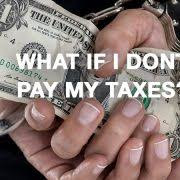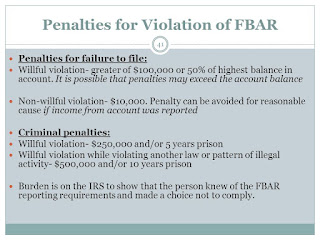The IRS announced on March 21, 2022, that Money received through ‘crowdfunding’ may be taxable.
Crowdfunding is a method of raising money through websites by soliciting contributions from a large number of people. The contributions may be solicited to fund businesses, for charitable donations, or for gifts. In some cases, the money raised through crowdfunding is solicited by crowdfunding organizers on behalf of other people or businesses. In other cases, people establish crowdfunding campaigns to raise money for themselves or their businesses.
he crowdfunding website or its payment processor may be required to report distributions of money raised if the amount distributed meets certain reporting thresholds by filing Form 1099-K, Payment Card and Third Party Network Transactions, with the IRS. If Form 1099-K is required to be filed with the IRS, the crowdfunding website or its payment processor must also furnish a copy of that form to the person to whom the distributions are made. The American Rescue Plan Act clarifies that the crowdfunding website or its payment processor is not required to file Form 1099-K with the IRS or furnish it to the person to whom the distributions are made if the contributors to the crowdfunding campaign do not receive goods or services for their contributions.
Prior to 2022, the threshold for a crowdfunding website or payment processor to file and furnish a Form 1099-K was met if, during a calendar year, the total of all payments distributed to a person exceeded $20,000 in gross payments resulting from more than 200 transactions or donations.
For Calendar Years Beginning After December 31, 2021,
The Threshold Is Lowered And Is Met If, During A
Calendar Year, The Total Of All Payments Distributed
To A Person Exceeds $600 In Gross Payments,
Regardless Of The Number Of Transactions Or Donations.
Accordingly, if a crowdfunding website or its payment processor makes distributions of money raised that meet the reporting threshold, and the contributors to the crowdfunding campaign received goods or services for their contributions, then a Form 1099-K is required to be filed with the IRS. Additionally, if the distributions of the money raised are made to the crowdfunding organizer, a copy of the Form 1099-K must be furnished to the organizer; alternatively, if the distributions of the money raised are made directly to individuals or businesses for whom the organizer solicited funds, the Form 1099-K must be furnished to those individuals or businesses that receive amounts that meet the reporting threshold.
A person receiving a Form 1099-K for distributions of money raised through crowdfunding may not recognize the filer's name on the form. Sometimes the payment processor used by the crowdfunding website, rather than the crowdfunding website itself, will issue the Form 1099-K and be included as the filer on the form. If the recipient of a Form 1099-K does not recognize the filer's name or the amounts included on the Form 1099-K, the recipient can use the filer's telephone number listed on the form to contact a person knowledgeable about the payments reported.
Box 1 on the Form 1099-K will show the gross amount of the distributions made to a person during the calendar year, but issuance of a Form 1099-K doesn't automatically mean the amount reported on the form is taxable to the person receiving the form. As discussed below, the income tax consequences depend on all the facts and circumstances. If the distributions reported on a Form 1099-K are not reported on the tax return of the recipient of the form, the IRS may contact the recipient for more information. The recipient will have the opportunity to explain why the crowdfunding distributions were not reported on the recipient's tax return.
See FS-2022-20 four more information regarding "Crowdfunding."
Have an IRS Tax Problem?
www.TaxAid.com or www.OVDPLaw.com
or Toll Free at 888 8TAXAID (888-882-9243)
Read more at: Tax Times blog










